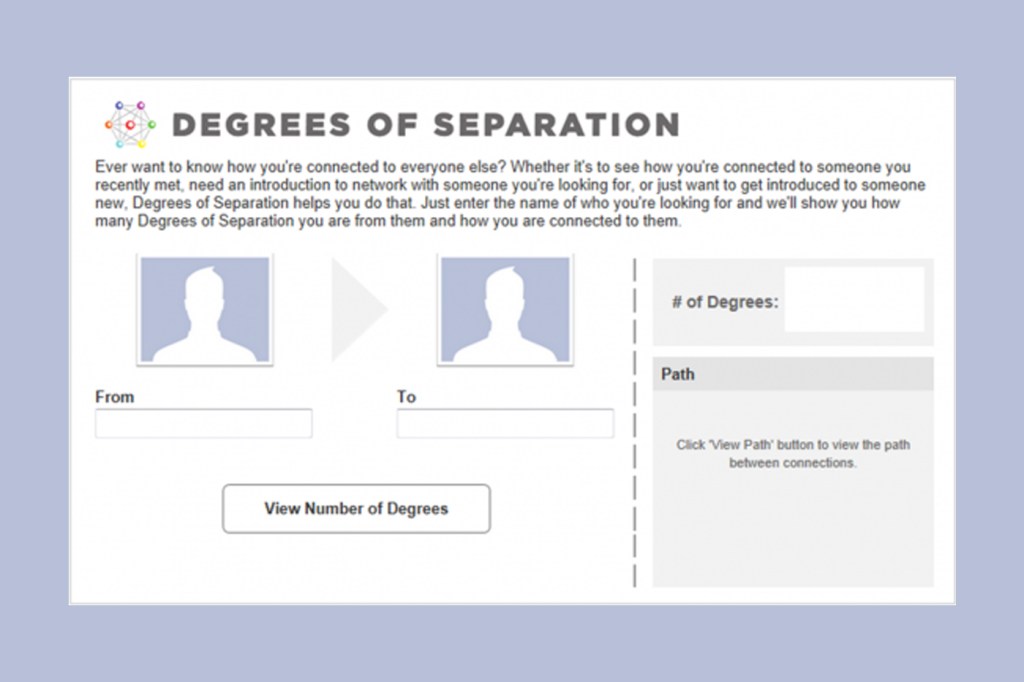Facebook’s new degrees of separation: Does it matter?

3.57 degrees of Kevin Bacon?
Could be, according to Facebook’s latest figures, released in a report on Thursday.
The announcement led to a flurry of media coverage, including articles in the New York Times, Wall Street Journal, BBC News, and Time.
What happened to the ubiquitous six degrees of separation? Or even 4.74, the number Facebook came up with in 2011 in collaboration with researchers at the Università degli Studi di Milano?
They’re all wrong, said Albert-László Barabási, Robert Gray Dodge Professor of Network Science at Northeastern, in our July post on the subject. “The precise number is a tossup, depending on how dense the network is,” he told us. Barabási is a leading member of Northeastern’s Network Science Institute, which brings together an interdisciplinary team of scholars to develop solutions that will improve the health and security of people in an interconnected world.
In that post, you can learn the history behind what academics call the small-world phenomenon. The Facebook report describes how the company’s researchers crunched the new number—and, if you’re on Facebook, how you measure up.
As for me, my personal degree of separation is 3.11, smaller than that of, well, the face of Facebook, Mark Zuckerberg (3.17). I’m not sure what that means, but right now I am feeling very popular.





